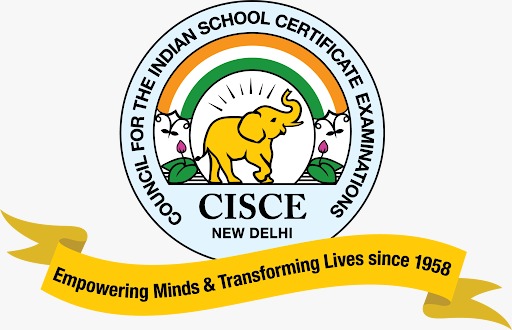In today’s academic and professional world, spelling accuracy serves as a fundamental marker of competence. Research from Cambridge Assessment English reveals that documents with proper spelling are perceived as 40% more credible than those with errors. For students, this translates directly to:
- Higher grades on written assignments and exams
- Clearer communication of ideas and arguments
- Stronger first impressions on teachers and professors
- Increased confidence in written expression
The challenge? Traditional spelling education often relies on rote memorization, which fails many learners. The solution lies in adopting science-backed strategies that work with how our brains naturally process language. It’s a skill honed gradually, and one that top institutions like the best international schools in Whitefield actively emphasize across subjects.
7 Research-Proven Spelling Strategies
1. The Syllable Breakdown Method
Complex words become manageable when divided into phonetic chunks:
Example Applications:
“Necessary” → Ne-ces-sar-y
“Environment” → En-vi-ron-ment
How to Practice:
- Pronounce each syllable distinctly
- Write the word while emphasizing syllable breaks
- Visualize the segmented word in your mind
This method connects spelling with pronunciation, improving long-term recall.
2. Mnemonic Device Mastery
Create memorable associations for problematic words:
Effective Examples:
- “Because” → Big Elephants Can’t Always Use Small Exits
- “Rhythm” → Rhythm Helps Your Two Hips Move
- “Accommodation” → Two Cots (CC) and Two Mattresses (MM)
Pro Tip: Develop personalized mnemonics for words you consistently misspell. Incorporating creativity here makes spelling more engaging—just like how Fun Activities can build deeper learning connections in young learners.
3. The Four-Step Learning Process
Adapted from cognitive science research:
- Look: Study the word carefully
- Cover: Hide the word from view
- Write: Reproduce it from memory
- Check: Verify accuracy and repeat if needed
Best For: Mastering high-frequency academic vocabulary through repetition.
4. Spelling Rule Fundamentals
Every student should learn essential spelling rules and their exceptions:
| Rule | Example | Exception |
| I before E | Believe, Field | Weird, Science |
| Silent E | Hope → Hoping | Argument |
| Doubling Consonants | Running | Opened |
Practice Tip: Create flashcards for rules and their exceptions. This aligns well with grammar principles such as Parts of Speech to develop a well-rounded command of the English language.
5. Visual Learning Techniques
Boost retention by making words visually memorable:
- Color-coding: Highlight tricky syllables
- Word shape diagrams: Outline the physical shape of a word
- Comparison drills: Spot the differences between correct vs. incorrect spellings
Visual memory is powerful—especially for younger students who learn well through Educational Games.
6. The Spelling Journal System
Track and improve through structured self-monitoring:
- Error Log: Record misspelled words
- Correction Practice: Write each correct version five times
- Contextual Use: Use it in original sentences
- Weekly Review: Set a time to revisit tough words
This habit promotes accountability and progression—especially in environments that prioritize foundational literacy, such as the best schools in Kadugodi.
7. Active Application Methods
Reinforce learning through real usage:
- Dictation drills with peers or parents
- Essay writing without spell-check
- Timed writing exercises
These methods simulate real academic pressures and strengthen retention. For advanced learners, incorporating Idioms and Phrases into practice can elevate both vocabulary and contextual language use.
Common Spelling Challenges & Solutions
| Word | Common Error | Memory Trick |
| Definitely | Definately | Contains “finite” |
| Occurrence | Occurence | Double C, double R |
| Privilege | Priviledge | “I” before “lege” |
| Separate | Seperate | Contains “a rat” |
Knowing these patterns helps turn frequent errors into learning opportunities.
Digital Tools for Spelling Improvement
Modern learning tools make spelling improvement accessible and fun:
- Anki: Spaced repetition flashcards
- Grammarly: AI-powered spelling and grammar correction
- Vocabulary.com: Interactive learning and quizzes
- Spelling Shed: Gamified platform especially for children
These tools work best when used consistently and in combination with the strategies mentioned above.
Implementation Plan for Rapid Improvement
Week 1–2: Foundation Building
- Master 5 core spelling rules
- Create mnemonics for 20 commonly misspelled words
- Start a spelling journal
Week 3–4: Active Practice
- Engage in daily dictation and writing exercises
- Compose 3 paragraphs daily without spell-check
- Review spelling journal entries each week
Week 5+: Maintenance & Mastery
- Add new words to your journal weekly
- Refresh spelling rules monthly
- Practice unassisted writing tasks regularly
Conclusion
Mastering spelling transforms your writing from good to exceptional. By implementing these research-backed strategies:
- Your written work will make a stronger impression
- You’ll communicate ideas with greater clarity
- Academic performance will improve across subjects
- Confidence in writing situations will grow exponentially
Spelling proficiency isn’t about natural talent—it’s about using the right techniques consistently. Start with one strategy today, and within weeks you’ll see measurable improvement in your spelling accuracy and overall writing quality.
Frequently Asked Questions
Most students notice progress within 2-3 weeks of consistent practice.
When used alongside active writing practice, yes. They work best as supplements.
This indicates the need for targeted practice with those specific words using multiple strategies.
15-20 minutes of focused practice yields excellent results over time.
Absolutely. Regular reading builds visual memory of correct spellings.








